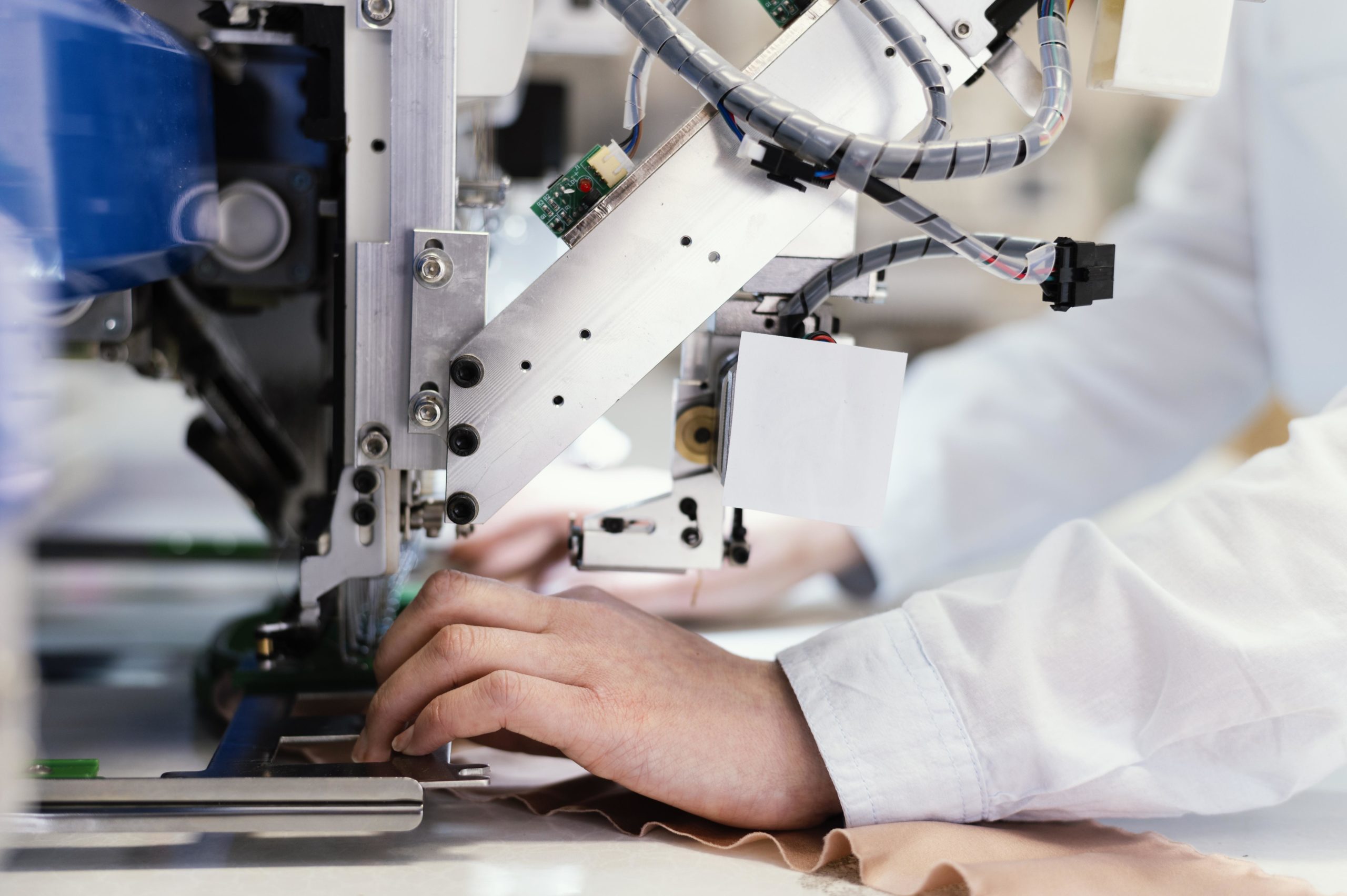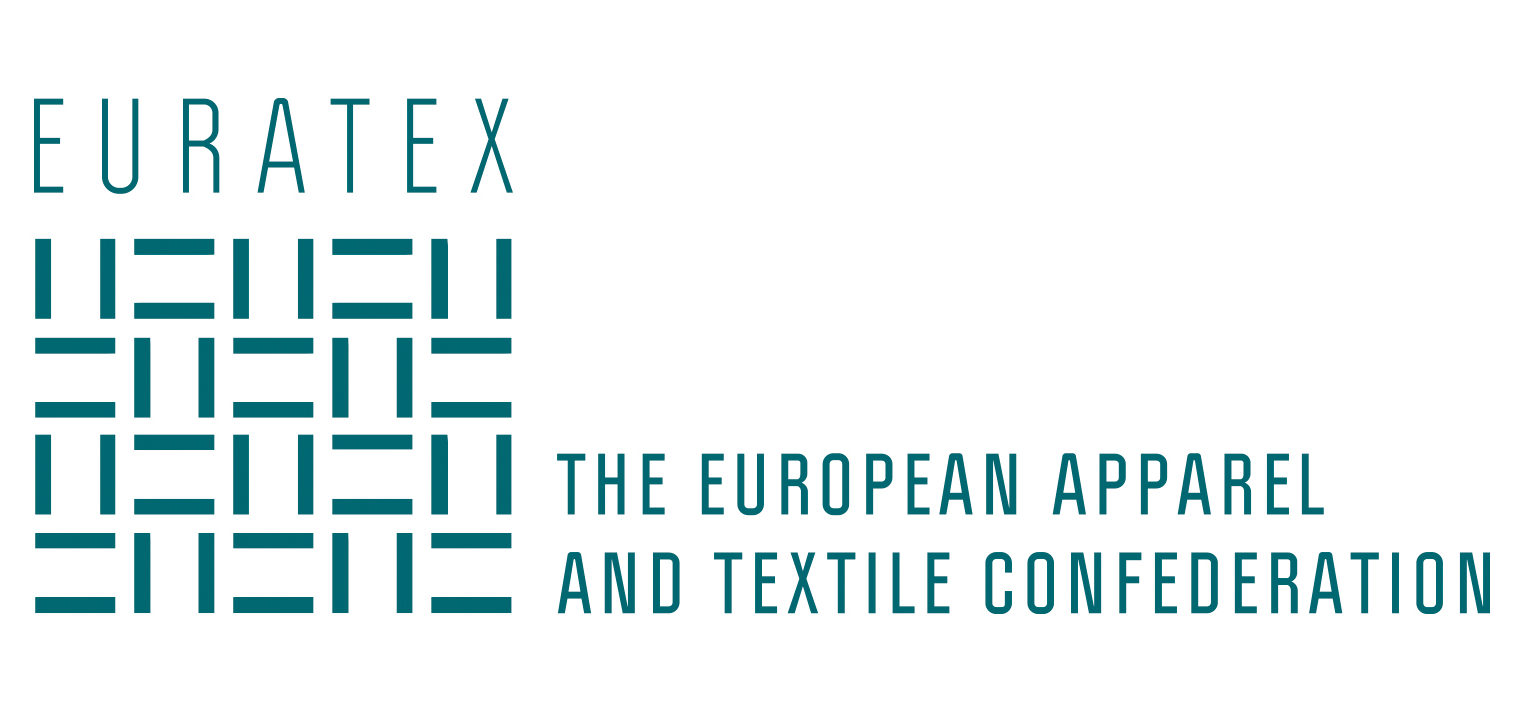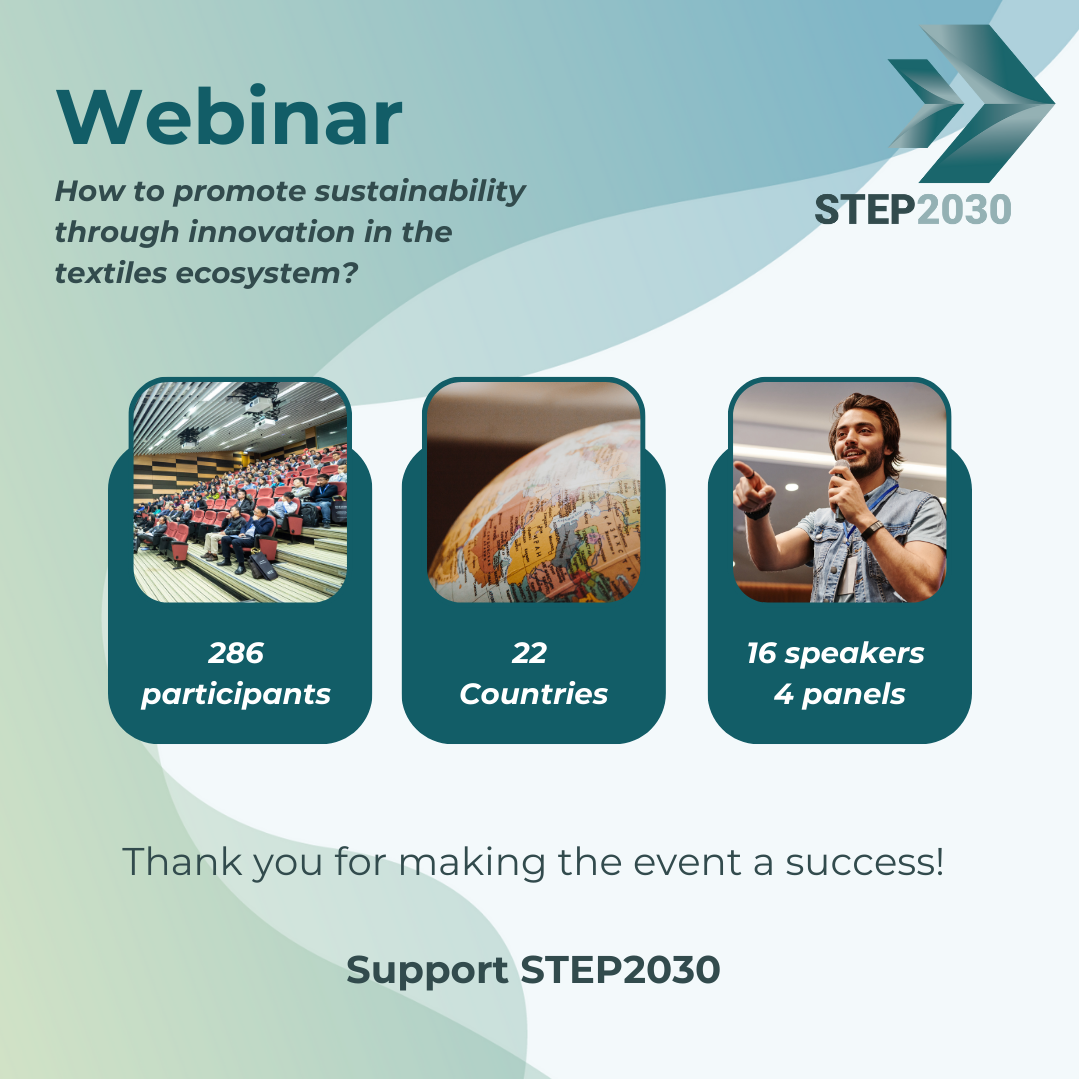The European Textile and Clothing Industry is a dynamic and highly diversified industrial sector. The use of specialized knowledge and sectorial skills are fundamental to meet the ever-changing needs of a large range of end markets.
Companies are constantly increasing their efforts and investments in technological and non-technological innovation. A large share of the industry also engages regularly in applied research, often in collaboration with suppliers, customers, and knowledge providers such as research institutions and universities.

STEP2030 – Sustainable Textiles European Partnership
STEP2030 – Sustainable Textiles European Partnership is a proposal for a public-private partnership under the European research and innovation framework programme HORIZON EUROPE that aims to
promote innovations for more circularity and sustainability in the textile ecosystem, as well as to advance textile recycling throughout the value chain.
On 15 September, EURATEX hosted the webinar STEP2030 – How to promote sustainability through innovation in the textiles ecosystem? to raise awareness among textile stakeholders of the innovation happening within the textile industry as well as the needs for further innovation; the webinar also introduced innovation priorities of the sector.
In the domain of Research & Innovation, EURATEX supports the industry through proactive work with EU institutions and policy makers. Our main goals are:
• Create the best conditions for industrial research and innovation activities in Europe;
• Provide funding and other support mechanisms for collaborative research and innovation through European programmes;
• Promote an innovative and forward-looking textile industrial sector of the future.
In the domain of Skills, EURATEX promotes a range of initiatives and policies to address the increasing challenge of attracting and retaining qualified talents for the EU textile and clothing industry. Our main goals are:
• Support policies and initiatives to improve sectoral education and training at all qualification levels, including higher education in Europe;
• Provide funding and other support mechanisms for collaborative projects across the full spectrum of sectoral education and training through European programmes such as ERASMUS+;
• Promote the EU textile and clothing industry as an attractive employer providing high quality jobs and interesting career opportunities.
EURATEX also leads – or actively participates in – joint actions and projects, and regularly supports the dissemination of project results to the industry.

